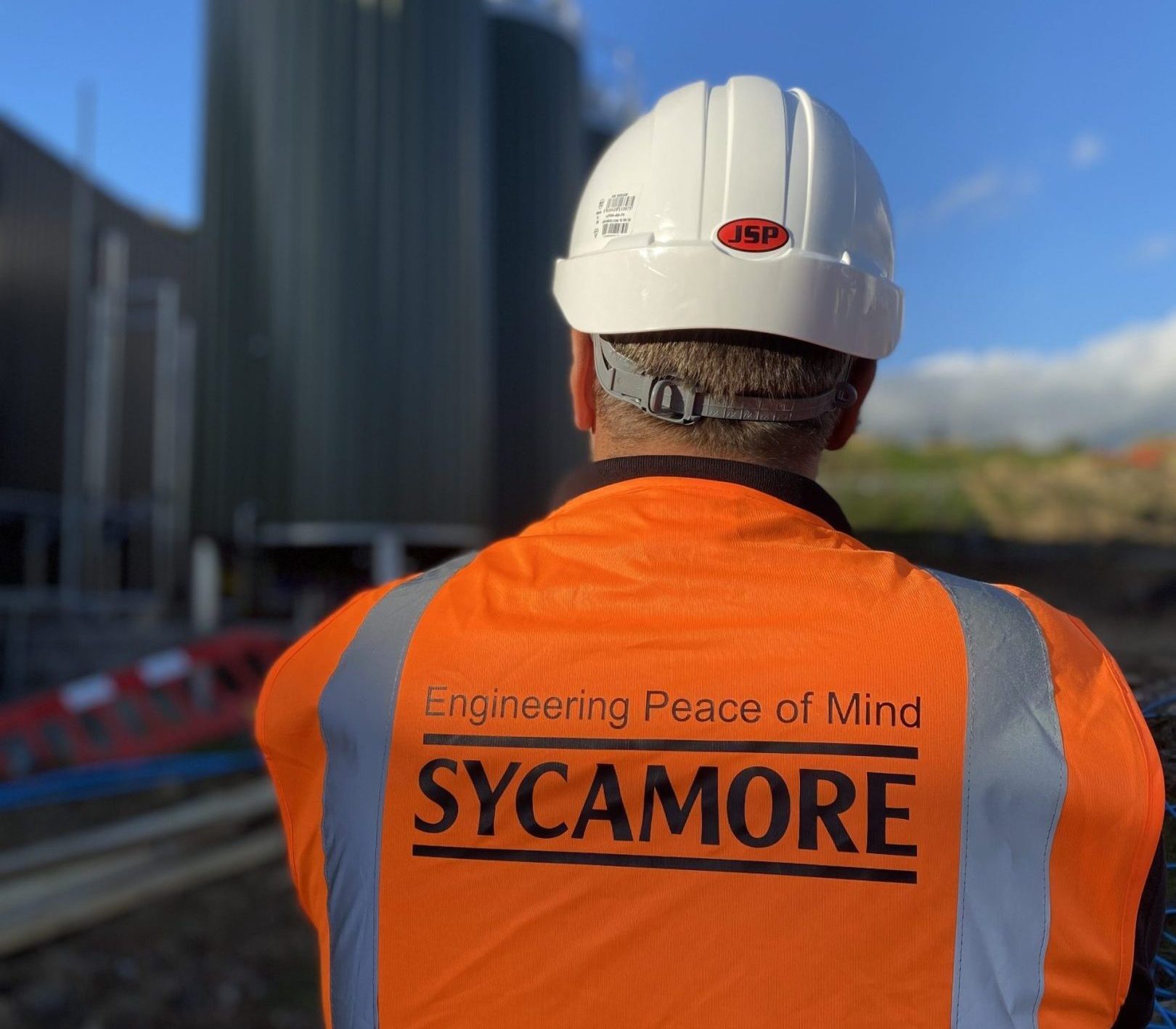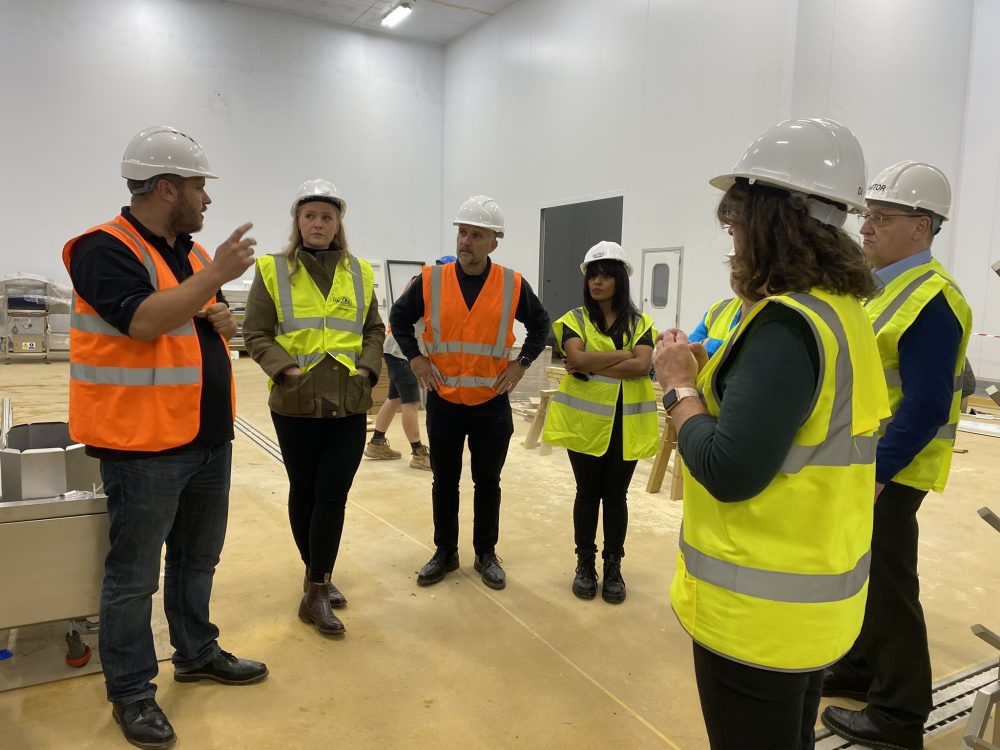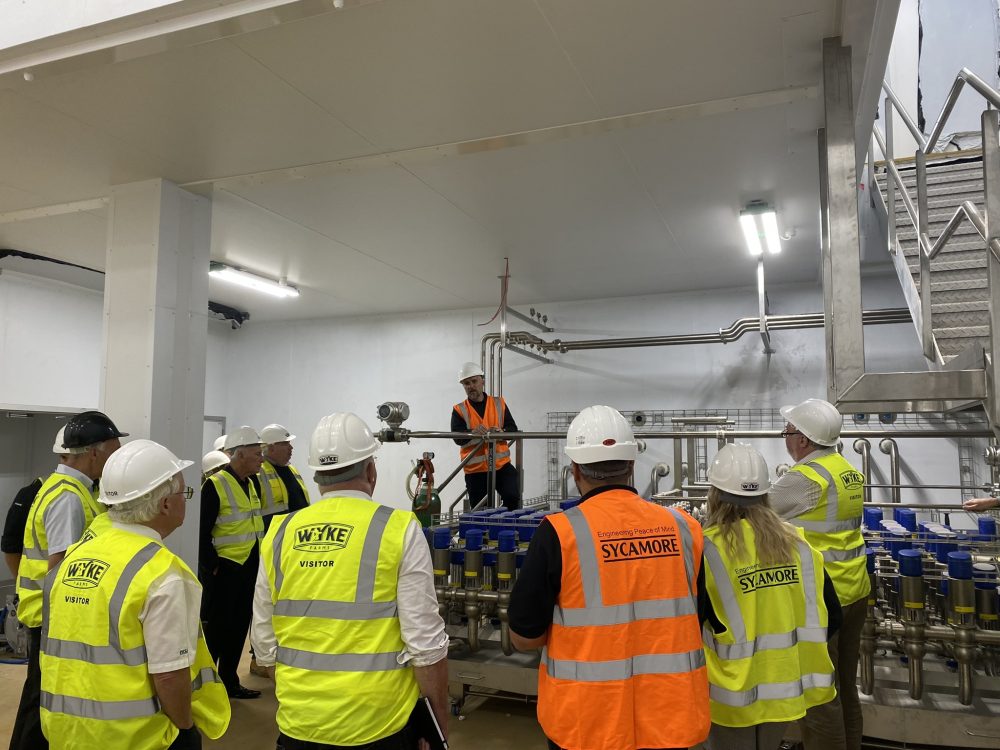The Society of Dairy Technology (SDT) is a group of experts from the dairy processing industry who are driving innovations to promote the most sustainable process solutions throughout the dairy industry which we are proud to be supporting. We have previously sponsored SDT’s summer symposium and supported events in the UK and Ireland. We are keen to continue this support of the society, ensuring the dairy industry continues its drive towards being as sustainable as possible.
Wyke Farms have been at the forefront of promoting sustainability throughout the dairy industry for many years and are certainly leading by example. Throughout our working relationship with Wyke Farms, we have delivered several successful projects which have had a focus on operating sustainably to limit the impact of the dairy process on the environment.
We were able to work with Sharlene Harrison, Chairman for England: South and West to organise this event whilst also being able to invite one of our customers to be involved in the event, showing how our process solutions enable customers to achieve their sustainability goals.
Wyke Farms presentation and tour:
Tom Clothier, Production Director and Director of Renewable Energy presented to the attendees the history of their family-run cheese-making business and the progress they are making on their journey to continue reducing their carbon footprint.
Wyke Farms have installed an anaerobic digestor plant at their sustainability centre which is fuelled by wastage in their cheese-making process, cow manure from their farms and other local farmers as well as any other suitable waste material. The benefit of this process is the biogas that is produced is used to fuel the dairy generator which produces the electricity used in the cheese-making dairy. The anaerobic digestor also powers itself with the green energy plant generator, which is powered by biogas, while the remaining biogas is sent back to the national grid after being treated to leave biomethane to power homes. The other product of this system is digestate which is rich in nitrogen, phosphate and potash and is spread on the farm’s fields to eliminate the need for artificial fertilisers.
Wyke Farms also works closely with their farmers to help them improve their sustainability efforts to reduce their carbon footprint via their ‘Net Positive Farming’ Pillar Farmer programme. The results of their latest carbon footprint audit show that the Wyke Farms Pilot Group supplying the milk for the cheese-making process was 20% lower than the national average.
After Tom had presented the efforts that Wyke Farms are going to and his vision for the future he led the tour of the anaerobic digestor where members of the society were able to see the process in action to gain a greater understanding.
Sycamore presentation and tour:
Design Engineering Manager, Joe Matthews presented the importance of investing in a sustainable process solution with a low OPEX instead of prioritising the ‘old school’ approach of focusing on minimising CAPEX at the expense of investing in a solution that will have a detrimental impact on the environment.
Joe was able to cover the importance of selecting the most efficient processing equipment whether this is pumps, valves, heat exchangers or vessel cleaning heads. The selection of pumps is significantly important when reducing the OPEX of your plant. The example presented showed that 85% of the cost of ownership for a pump is energy, therefore selecting the most efficient pump rather than the option offering the lowest capital expenditure as this section only accounts for 7% of the cost of ownership, furthermore an efficiently ran pump will last longer. Joe also covered the significance of using the most efficient valves with the latest technology such as the burst rinse function on the Alfa Laval V70 ThinkTop which can save 2,000,000 litres of CIP fluid over 30 valves over a year. The presentation also questioned the norms of process solutions and how they are operated. Many processing facilities run their pumps on 50Hz rather than the 60Hz they are more than capable of running at. The benefit of being able to run these pumps at 60Hz for the specific application for this example is that it reduces the pump duty to 6.82 kW for 60Hz compared to a pump duty of 7.12kW for 50Hz. The sustainability impact of this is that the 60Hz solution reduces CO₂ emissions by 1,768 tons per year while saving €650 a year per pump. Running the pumps at 60Hz could also improve the CAPEX by utilising a smaller pump.
The presentation was followed by a tour of Wyke Farms’ new Butter Dairy, where we are currently installing a new Cream Mixproof Manifold and CIP system. The tour was led by Wesley Hosking, Project Engineering Manager, Senior Project Engineer – John Cooper and from Wyke Farms Jason Fewell, Engineering Director. This enabled the attendees to see the quality of a sycamore Process Engineering installation and how we are flexible to work with our customers when delivering end-to-end process solutions.
Those who attended the event now fully understand how our process solutions form the design stage of each project focus on our customers’ needs and requirements to provide a sustainable processing plant that allows them to achieve their sustainability goals, whether that is a reduction in CO₂ emissions, reduce the amount of water usage or energy consumption.



